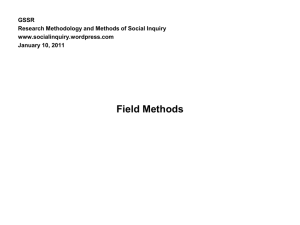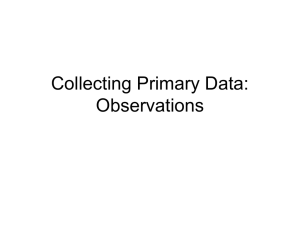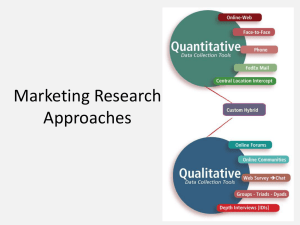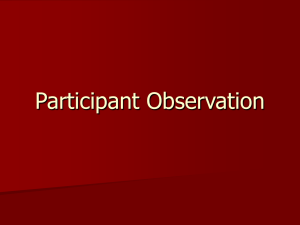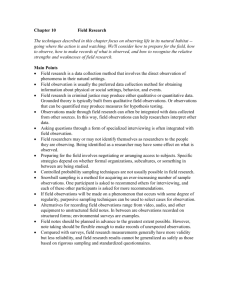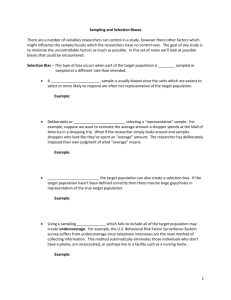Research Methodology and Methods of Social
advertisement
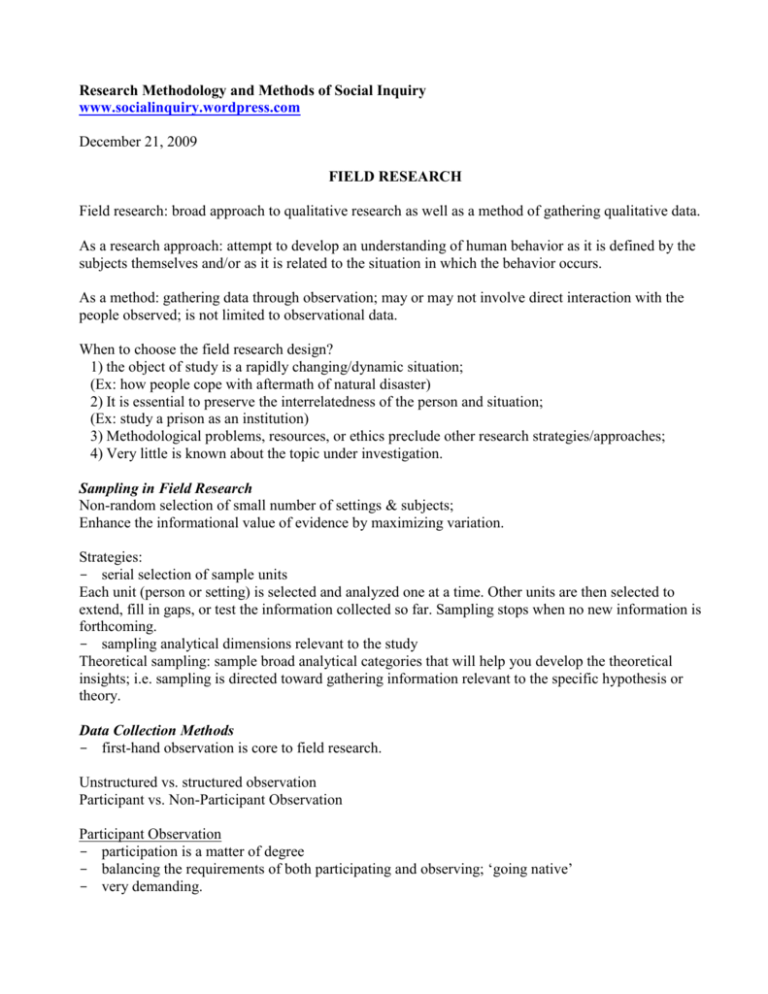
Research Methodology and Methods of Social Inquiry www.socialinquiry.wordpress.com December 21, 2009 FIELD RESEARCH Field research: broad approach to qualitative research as well as a method of gathering qualitative data. As a research approach: attempt to develop an understanding of human behavior as it is defined by the subjects themselves and/or as it is related to the situation in which the behavior occurs. As a method: gathering data through observation; may or may not involve direct interaction with the people observed; is not limited to observational data. When to choose the field research design? 1) the object of study is a rapidly changing/dynamic situation; (Ex: how people cope with aftermath of natural disaster) 2) It is essential to preserve the interrelatedness of the person and situation; (Ex: study a prison as an institution) 3) Methodological problems, resources, or ethics preclude other research strategies/approaches; 4) Very little is known about the topic under investigation. Sampling in Field Research Non-random selection of small number of settings & subjects; Enhance the informational value of evidence by maximizing variation. Strategies: - serial selection of sample units Each unit (person or setting) is selected and analyzed one at a time. Other units are then selected to extend, fill in gaps, or test the information collected so far. Sampling stops when no new information is forthcoming. - sampling analytical dimensions relevant to the study Theoretical sampling: sample broad analytical categories that will help you develop the theoretical insights; i.e. sampling is directed toward gathering information relevant to the specific hypothesis or theory. Data Collection Methods - first-hand observation is core to field research. Unstructured vs. structured observation Participant vs. Non-Participant Observation Participant Observation - participation is a matter of degree - balancing the requirements of both participating and observing; ‘going native’ - very demanding. Non-participant Observation - often used in combination with participant observation; - the observer strives to be as unobtrusive as possible so as not to bias the observations. - more detached perspective - more focused than participant observation Stages of Fieldwork (see Singleton and Straits, pp. 322-339) 1. Selecting appropriate setting 2. Gaining access 3. Presenting oneself to those in the setting (ethical problems) - participant or membership roles must be developed by the researcher, who can become a peripheral, active, or complete member in the field setting. 4 + 5. Gathering & Analyzing information To collect data: - mental notes and field jottings to record detailed field notes as soon after the observation as possible; in addition to observation, question participants and consult records and personal documents. - throughout the process of gathering information, the researcher develops concepts and tentative hypotheses to make sense of the data; To identify patterns and gaining insights: coding field notes, writing memos, asking questions and counting. Important: have alternative explanations and perform various validity checks (ex. Corroborative evidence) Field Interviewing - supplements field observation by asking about unobserved events, different perspectives on events, and informants’ thoughts and feelings Two basic forms: 1) informal interviews, in ordinary conversation; 2) formal, in-depth interviews, with help of interview guide. The interview generally progresses from questions about concrete situations to more abstract and interpretive questions that probe the informants experience and interpretation of events. The order of questions and exact wording depends on the background of informant and the genera course of the conversation. Case Studies - as intensive study of a specific individual or specific context. No single way to conduct a case study; generally involve a combination of methods (e.g., unstructured interviewing, direct observation). Weaknesses of the Field Research Strategy 1) Inferior way of testing specific causal hypotheses 2) Very time consuming and sometimes inefficient method of data collection 3) Data are limited: observations in few settings, and highly dependent on the observational skills of the researcher. Filed research is difficult to replicate and compare, and may lack generalizability
